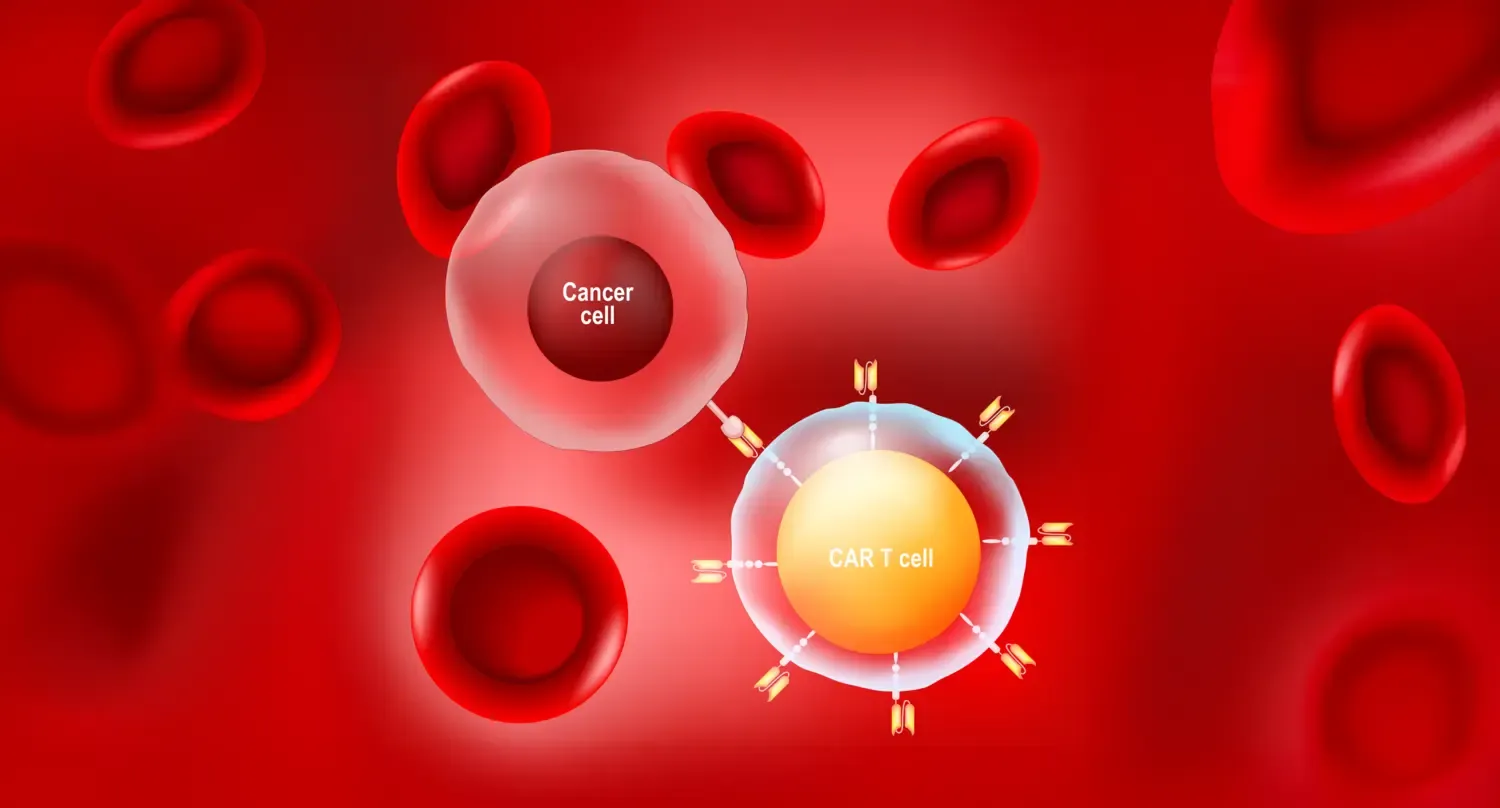Cancer, one of the most devastating diseases of modern times, has long evaded a definitive cure. Its complexity, adaptability, and the way it manipulates the human body’s normal processes make it a relentless foe. But amid the extensive research and clinical trials, one compelling area of hope has emerged: the human immune system. Could the body’s natural defense mechanisms be the key to unlocking a cure for cancer?
In this article, we’ll explore how cancer interacts with the immune system, the promising immunotherapies that are revolutionizing treatment, and the fascinating possibilities of harnessing our own biology to fight back against cancer.
Understanding Cancer and the Immune System
Before we dive into the relationship between cancer and the immune system, let’s first establish a basic understanding of both.
What is Cancer?
Cancer is not a single disease but a group of diseases characterized by the uncontrolled growth and spread of abnormal cells. It arises when cells undergo mutations that disrupt normal cellular processes like division, repair, and death. These rogue cells can form tumors, invade nearby tissues, and spread to distant organs (metastasis).
The complexity of cancer comes from its ability to adapt to the body’s defenses, including the immune system. Mutations in cancer cells can help them evade detection, allowing them to grow unchecked.
The Immune System’s Role
The immune system is the body’s defense mechanism against invaders like bacteria, viruses, and abnormal cells. It consists of several components, including white blood cells, antibodies, and various signaling molecules. Among its many functions, the immune system is capable of detecting and destroying abnormal cells, including those that could become cancerous.
The immune system typically identifies cancerous cells as foreign or dysfunctional and attempts to neutralize them. However, cancer cells have evolved clever strategies to evade immune detection, such as producing signals that suppress immune response or even disguising themselves as normal cells.
The Immune System and Cancer: A Tug-of-War
The relationship between cancer and the immune system is complex. On the one hand, the immune system is constantly surveilling for and eliminating rogue cells. On the other hand, cancer cells are also continuously evolving to avoid detection and destruction.

Immune Surveillance: The First Line of Defense
Historically, scientists believed that the immune system’s role in cancer was secondary, and that cancer was primarily driven by genetic mutations. However, research over the past few decades has highlighted the crucial role of immune surveillance. The idea is that the immune system can, in fact, detect and destroy nascent cancer cells before they can form tumors.
In fact, several studies in animals and humans have shown that immunodeficient individuals—those with weakened immune systems—are at greater risk of developing cancers. This suggests that the immune system plays a critical role in preventing the formation and growth of tumors.
Tumor Evasion: How Cancer Outwits the Immune System
While the immune system is adept at detecting and eliminating abnormal cells, cancer cells are remarkably resourceful in evading this detection. They employ several tactics to escape the immune response:
- Immune Checkpoints: Cancer cells can activate immune checkpoint proteins such as PD-1 and CTLA-4, which are typically used by the immune system to prevent overactivation and autoimmune reactions. However, cancer cells hijack these checkpoints to turn off immune attack, effectively making them invisible to immune cells.
- Immunosuppressive Environment: Tumors often create a microenvironment that actively suppresses immune activity. They release molecules that dampen the immune response and recruit immune cells that support tumor growth rather than attacking it.
- Antigen Masking: Some cancer cells can “hide” their abnormal antigens, making it difficult for the immune system to recognize them as threats.
Immunotherapy: Turning the Tables
While cancer cells have developed mechanisms to evade the immune system, researchers are finding ways to overcome these challenges through immunotherapy—a treatment that uses the body’s own immune system to fight cancer. Immunotherapy has already shown remarkable success in treating certain types of cancer and is considered one of the most promising avenues for cancer treatment.
Types of Immunotherapy
- Monoclonal Antibodies: These are laboratory-produced molecules that can bind to specific cancer cell markers, marking them for destruction by the immune system. Some monoclonal antibodies also block the immune checkpoints that cancer cells exploit, allowing the immune system to do its job.
- Checkpoint Inhibitors: As mentioned earlier, cancer cells often use checkpoint proteins to evade immune detection. Checkpoint inhibitors are drugs that block these proteins, essentially “releasing the brakes” on the immune system. The FDA has approved several checkpoint inhibitors for use in cancers like melanoma, non-small cell lung cancer, and bladder cancer.
- CAR-T Cell Therapy: This innovative approach involves modifying a patient’s T-cells (a type of white blood cell) to better recognize and attack cancer cells. These modified T-cells are then infused back into the patient, where they can target and destroy cancer cells more effectively. CAR-T therapy has shown success in treating certain blood cancers like leukemia and lymphoma.
- Cancer Vaccines: Cancer vaccines aim to stimulate the immune system to recognize and attack cancer cells. While traditional vaccines prevent disease, cancer vaccines are designed to treat cancer. Examples include the HPV vaccine (which can prevent cervical cancer) and therapeutic vaccines that target existing tumors.
- Cytokine Therapy: Cytokines are signaling molecules that help coordinate the immune system’s response. Some treatments focus on boosting the levels of certain cytokines to enhance the immune system’s ability to attack cancer cells.
Success Stories: Immunotherapy in Action
Several patients have experienced dramatic improvements thanks to immunotherapy, even when conventional treatments like chemotherapy and radiation have failed. For instance:
- Melanoma: Once considered one of the most deadly forms of skin cancer, melanoma has seen major breakthroughs with checkpoint inhibitors. Drugs like pembrolizumab (Keytruda) have significantly improved survival rates for patients with advanced melanoma, offering a new lease on life for many.
- Lung Cancer: Lung cancer, particularly non-small cell lung cancer (NSCLC), has historically had low survival rates. However, the introduction of immunotherapies like nivolumab (Opdivo) has improved survival for many patients with advanced NSCLC.
- Leukemia and Lymphoma: CAR-T cell therapy has shown remarkable success in treating certain types of blood cancers, including leukemia and lymphoma. Some patients who had exhausted other treatment options have gone into long-term remission after CAR-T therapy.

The Future of Cancer Treatment: Harnessing the Full Power of Immunity
Immunotherapy is still a relatively new field, but its potential is enormous. Researchers are continually exploring ways to make these treatments more effective, less toxic, and applicable to a wider range of cancers.
Personalized Cancer Immunotherapy
One of the most exciting directions in cancer treatment is personalized immunotherapy. Each tumor is unique, and the immune response to a specific cancer can vary greatly from patient to patient. By analyzing the genetic makeup of both the tumor and the patient’s immune system, researchers can develop more tailored treatments.
For example, some researchers are focusing on identifying neoantigens—unique markers found on tumor cells that can be targeted by the immune system. By creating personalized cancer vaccines or engineered T-cells, these treatments aim to be more specific, reducing the side effects often associated with traditional treatments.
Overcoming Resistance
Just as cancer cells have developed ways to evade the immune system, they can also develop resistance to immunotherapy. To combat this, scientists are exploring combination therapies that pair immunotherapy with other treatments, like chemotherapy or targeted therapy. These combination strategies could potentially improve efficacy and prevent cancer from adapting to immune attacks.
The Promise of Artificial Intelligence
Artificial intelligence (AI) is making its way into the world of immunotherapy, too. AI can analyze vast amounts of data to identify potential biomarkers for cancer treatment, predict how a patient’s immune system will respond to certain therapies, and even discover new drugs. By integrating AI into immunotherapy research, scientists hope to accelerate the development of more effective and personalized treatments.
Conclusion: The Road Ahead
While cancer remains one of the most formidable diseases, the human immune system offers a beacon of hope. Through groundbreaking immunotherapies, we are beginning to understand how we can turn the body’s own defenses against the disease. The progress so far has been nothing short of remarkable, and we are just scratching the surface of what may one day be a cure.
However, the road to fully harnessing the immune system’s power against cancer is still long. We must continue to invest in research, refine treatments, and ensure equitable access to the most promising therapies. But with the immune system on our side, the fight against cancer has never seemed more promising.










































